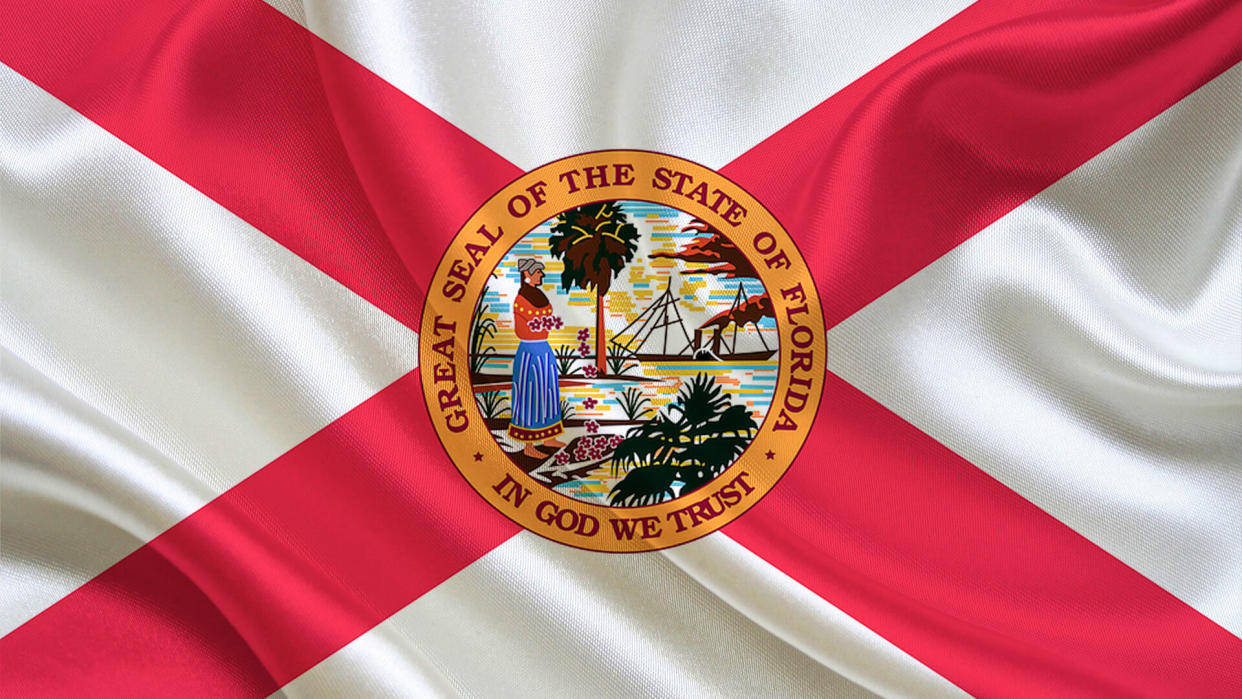Florida Income Taxes: Everything You Need To Know

If you are thinking about retiring in Florida, it’s important to know how to budget when it comes to paying taxes. Understanding what you owe in total can be confusing, but don’t worry, as here’s a guide to make it simple for you. Florida may not have a state income tax but what does that mean for the other Florida state tax rates?
Be Aware: What To Do If You Owe Back Taxes to the IRS
Florida Income Tax
The Florida income tax rate on personal income is zero percent. Only nine states don’t charge income tax — Florida, Alaska, Nevada, New Hampshire, South Dakota, Tennessee, Texas, Washington and Wyoming. These states offer residents a chance to only pay federal taxes on the money they earn. Although there’s no Florida income tax for individuals, the state does charge a 5.5% corporate income tax rate.
Without an income tax, Florida is often a popular destination for retirees or others on a fixed income. However, states that don’t have a personal income tax tend to make up for it in other ways such as the state sales tax or even county taxes.
Florida State Tax Information
Below is a list of tax rates you could expect to pay on average in Florida.
Type of Tax | Tax Rate Range |
|---|---|
General sales tax | 6% |
State income tax | 0% |
Corporate income tax | 5.5% |
Average Florida property tax | 0.91% |
Florida Sales Tax
The vast majority of the taxes collected in Florida comes from the sales tax. Florida has a sales tax that you pay when you buy most goods and some services. The sales tax rate can vary depending on where you are in the state, but it’s typically around 6% statewide.
There are some other taxes you might encounter in Florida, like the following:
Taxes on gas
Tourist-related taxes on amusement machines and sales
Use taxes on specific goods like cigarettes or alcohol
These taxes help fund various state and local programs and services. Nationwide, nearly half of state-level taxes are collected via sales tax, so the majority of total revenues generated by sales taxes in Florida is way above the norm. But that doesn’t necessarily mean that the state is charging its residents more than other states.
According to TurboTax, Florida is one of the top states with the lowest overall tax burdens, coming in at 6.33%.
Does Florida Have Property Tax?
If you own property in Florida, you’ll need to pay property taxes. These taxes help fund things like schools, roads and public services in your county. The amount you pay in property taxes is based on the value of your property, so it can vary from one homeowner to another.
Property taxes are typically charged at a local level, so they will vary depending on where you live within the state. Although the effective average rate statewide is 0.91%, the local rate range will vary.
Florida State Estate and Inheritance Tax
Florida charges neither estate tax nor inheritance tax, so the only exposure for the assets of the deceased is federal estate taxes. This means that Florida does not impose a tax on the transfer of assets after someone passes away. Keep in mind though that the federal government does have an estate tax, which may be levied on larger estates.
Filing Your Taxes in Florida
Since there’s no state income tax in Florida, you don’t need to file a state income tax return. That means you won’t have to deal with the headache of filling out extra forms or worrying about deductions and credits for state taxes. It’s one less thing to worry about come tax season!
However, you’ll still need to file your federal income tax return with the Internal Revenue Service, like everyone else in the United States. But you can breathe a little easier knowing that you won’t have to worry about state income taxes on top of that.
Getting Help With Taxes
Even though Florida’s tax system is relatively simple compared to some other states, you might still have questions or need assistance when it comes time to do them. Fortunately, there are resources available to help:
Tax preparation services: If you’re unsure about how to file your federal income taxes, you can seek assistance from tax preparation services like H&R Block or TurboTax. These services can walk you through the process and help ensure you’re getting all the deductions and credits for which you’re eligible.
Tax professionals: If your tax situation is more complex, or if you have questions specific to Florida taxes, you might consider consulting with a tax professional. These experts can provide personalized advice based on your individual circumstances and help you navigate any tax-related issues.
Online resources: There are plenty of online resources available to help you understand taxes in Florida, including the Florida Department of Revenue website. Here, you can find information about sales tax rates, property taxes and other tax-related topics.
Final Take To GO
The bottom line is that when you live in Florida, whether it’s a mobile home or a mansion, nothing is tax-free. Though having no state income tax comes with many perks, you’ll still need to pay other taxes like sales tax and property tax, but the absence of state income tax can save you money and simplify your tax filing process. Just be sure to stay informed about your tax obligations and take advantage of available resources if you need assistance with your unique tax situation in the Sunshine State.
Joel Anderson contributed to the reporting for this article.
Information is accurate as of March 1, 2024.
This article originally appeared on GOBankingRates.com: Florida Income Taxes: Everything You Need To Know
